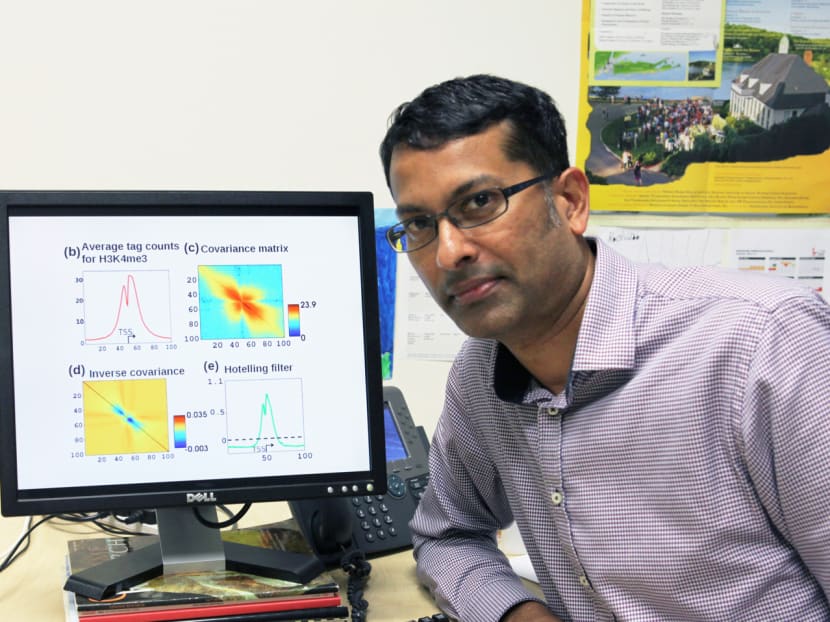Singapore scientists part of breakthrough in autism research
SINGAPORE — In a breakthrough that could pave the way for drugs to be developed to treat autism, scientists have discovered common patterns in the way DNA is “packaged” in the brains of autistic individuals that distinguish them from non-autistic people.

Dr Shyam Prabhakar, a senior author of the study, said there is now potential to develop drugs to treat most people with autism. Photo: Genome Institute of Singapore
SINGAPORE — In a breakthrough that could pave the way for drugs to be developed to treat autism, scientists have discovered common patterns in the way DNA is “packaged” in the brains of autistic individuals that distinguish them from non-autistic people.
There are no drugs now to treat autism as its causes are poorly understood, and help is usually in the form of behavioural therapy. The complex condition comprises several brain disorders, although people with autism generally display repetitive behaviour and have difficulty socialising and communicating. In general, autism affects an estimated 1 per cent of the population.
The latest discovery by scientists, including a team from Singapore, means that there is potential to develop drugs which could treat the majority of autistic individuals, instead of merely a tiny fraction of them, Dr Shyam Prabhakar said. He is the senior author of the study and associate director of integrative genomics at the Genome Institute of Singapore.
The scientists found that autistic people shared a common set of about 5,000 changes in the layer of molecules called the epigenome, which sits on top of their DNA. This is despite autistic people not sharing common DNA (or genetic) mutations. The epigenome acts as a “volume control knob” for genes, Dr Prabhakar said.
“At the level of the epigenome, autistic kids all start to look like one another,” he said.
The scientists applied a sequencing approach for the epigenome in a new way, scanning the DNA in specific regions of the brain to see where the packaging was different.
This is the first time the sequencing approach has been used for autism and done on a large scale for any brain disorder. The scientists, made up of two other groups in the United States and United Kingdom, studied 209 brain samples of 94 people from the US. The study — funded by the US National Institutes of Health and Singapore’s Agency for Science, Technology and Research — was published in the prestigious journal, Cell.
On what the findings mean for parents of children with autism, Dr Prabhakar said: “It means there are molecular changes in the child’s brain that are similar to molecular changes in the brains of other children with autism, and we know what those changes are. Some of them cause symptoms, some of them cause autism … We found 5,000 epigenetic changes. Let’s say a handful of them are key changes that are causing autism, can we design a drug to reverse that?”
He added: “It might not magically wipe out the symptoms, but (it could) certainly reduce severity.”
The findings may motivate drug companies to develop a pill for autism, but Dr Prabhakar reckoned that the prospect is at least a decade away, given the need for more research and trials. Currently, epigenetic drugs are used to treat some cancers.
The new application of profiling the epigenome took six years to develop, Dr Sun Wenjie, one of the study’s lead authors, said. The research associate at the Genome Institute of Singapore added that this application could be used to investigate other diseases.
Dr Prabhakar said that the team would next look into how human cells respond to tuberculosis infection, and could delve into schizophrenia, auto-immune diseases and diabetes.
They will also validate the genes they think are contributing to autism.









